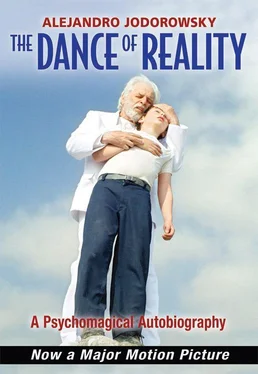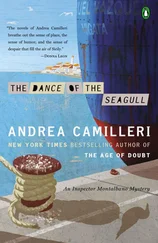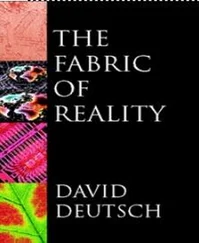I used a different technique with the closest memories, those I had experienced during that same day: I got in the habit of reviewing them before going to sleep, first from start to finish, then the other way around, following the advice of an old book on magic. This practice of “walking backward” had the effect of allowing me to place myself at some distance from events. After having analyzed, judged, and reprimanded or praised myself upon first examination, I went back over the day again in reverse and found myself to be distanced. Reality, thus captured, presented the same characteristics as a lucid dream. What this made me realize, more than ever, was that like everyone, I was to a large extent immersed in a dreamlike reality. The act of reviewing the day in the evening was equivalent to the practice of recalling my dreams in the morning. But to merely recall a dream is to organize it rationally. We do not see the complete dream, but the parts that we have selected depending on our level of consciousness. We reduce it to fit within the limitations of the individual “I.” We do the same with reality: when reviewing the last twenty-four hours, we do not have access to all the events of the day, but only to those we have captured and retained, which is to say a limited interpretation; we transform reality into what we think it is. This selective interpretation is the largely artificial foundation on which we then base our judgments and evaluations. To be more conscious, we can begin by distinguishing our subjective perception of the day from what constitutes that day’s objective reality. Once we stop confusing the two, we can view the events of the day as spectators, without letting ourselves be influenced by judgments, evaluations, and juvenile emotions. From this point of view, life can be interpreted as a dream is interpreted.
One client did not know how to get some young and unscrupulous tenants to vacate a house he owned. Something kept him from going to the police, even though the law was on his side. I said, “This situation is fitting for you. Thanks to it, you are expressing an old anxiety. Try to interpret it like a dream from last night. Do you have a younger brother?” He said yes, and I asked him if he had felt neglected when this intruder robbed him of his parents’ attention. He answered that it was so. Next, I asked him about his current relationship with his brother. As I had expected, he told me that it was not a good relationship, considering that they never saw each other. I explained that it was he himself who encouraged the invasion of his tenants (who were younger than he) in order to externalize the anguish he had felt in his childhood due to the presence of his younger brother. I added that if he wanted to resolve the situation, it was necessary to forgive his brother, treat him well, and become friends with him. “You should bring him a big bouquet of flowers and have lunch with him, so as to establish a fraternal relationship and set aside the past, in which you felt displaced by him. If you do this, you will put an end to your problem with the tenants.” He looked at me oddly. How could solving an old problem resolve a present difficulty? And yet, he followed my advice to the letter. He later sent me a short note: “I brought flowers to my brother and spoke with him on Friday at midday. On Friday night, the tenants left, taking all my furniture with them. But at least they left and I could get my house back. Could the loss of furniture mean that I have broken away from a painful part of my past?” This question revealed that my client was learning to decipher real situations as if they were dreams.
If we realize that we are dreaming in the dream world, then in the waking world, trapped in the limited conception of ourselves, we must jettison preconceived ideas and sentiments in order to immerse ourselves in the Essence with a naked spirit. Once this lucidity is gained, we have the freedom to act on reality, knowing that if we only try to satisfy our egotistic desires we will be swept away in the whirlwind of emotions, lose our equanimity and control, and thus lose the ability to be our own selves acting on the level of consciousness that corresponds to us. In the lucid dream, one learns that everything one desires with true intensity — with faith — will be realized after patient waiting. Knowing this, we must stop living like children, always demanding, and live like adults, investing our vital capital.
Two monks pray continuously. One is worried, the other smiling. The first asks, “How is it that I am anxious and you are happy, if both pray for the same number of hours?” The other replies, “It is because you always pray to ask, while I only pray to give thanks.” To achieve peace, both in the nighttime dream and in the daytime dream that we call waking, we must become less and less implicated in the world and in our image of ourselves. Life and death are only a game. And the ultimate game is to stop dreaming, that is, to disappear from this dream world and integrate oneself into the one who is dreaming.
There is a dimension with which I have not yet been lucky enough to experiment: shared therapeutic dreams. It is said that María Sabina, the mushroom priestess, received a man who had a terrible pain in his leg. Neither the most sophisticated remedies, nor acupuncture, nor massage had been able to relieve it. The old woman divided a portion of mushrooms into two equal parts to share with her patient. She lay down beside him. They fell asleep embracing. In her dreams, she saw the patient as a wizard, devouring a lamb. The shepherd of the herd struck it with his staff, injuring a leg. María took the animal and, laying her hands on it, healed the injured limb. The healer and her patient awoke at the same time. The pain in his leg had vanished. He never again experienced such suffering.
SEVEN.Magicians, Masters, Shamans, and Charlatans
My first encounter with magic and madness combined into art was during my childhood. I was about five or six years old when Cristina came to work as our maid. With my childish eyes I saw her as an old lady, though in fact she was only forty years old; the air, doubly salt-laden from the sea and from the nitrate dust of the desert, had made furrows in her forehead and cheeks. All her clothes were brown, like the habits of Carmelite nuns. Her hair, stretched and tied back to form a bun, looked like a helmet. It was she, clean, quiet, and friendly, with large but sensitive hands, who gave me the touches that my mother withheld, who rubbed my feet when I had a fever, who dressed me in the morning to go to school, who baked my favorite pastries filled with dark caramel that we called manjar blanco. How I loved Cristina! My need for my mother was very affective and painful, I was united to her absence, but Cristina, with her rustic humbleness, was balsam for my wounded heart.
I was surprised when my father, seeing me in the arms of my beloved maid, said in front of her with a cynical, self-satisfied smile, as if she were deaf: “I’m the only one who will give work to a madwoman.” Those words pierced my soul like a knife. I blushed, struggling to hold back my tears. Jaime shrugged his shoulders with a look of contempt, and left. Cristina began to rock me in her arms until I fell asleep. At about three o’clock in the morning, I woke up in my bed. I heard my father’s loud snoring and my mother’s breathing, which sounded like grumbling. I had gone to bed without my supper. Hungry, and with a dry mouth, I got up to get a glass of water and a fruit. The rooms were dark, but from the kitchen came the faint glow of a candle flame. At first, Cristina seemed not to notice my arrival. With strange concentration, she was sitting on a stool before the bare table, gently and precisely moving her hands in the air. She seemed to be shaping something, creating forms, smoothing invisible matter, going over and over imaginary surfaces with her fingers. A long time passed, maybe an hour. I stood there, mesmerized, transfixed, watching something that I could not understand and that corresponded to nothing I had known. At last, tired, hungry, and thirsty, I could hold back no longer.
Читать дальше












